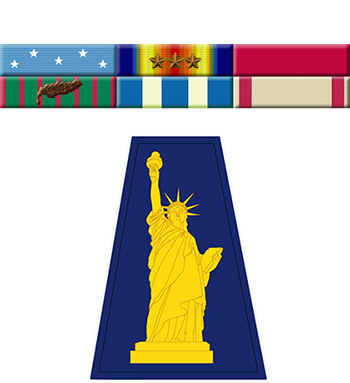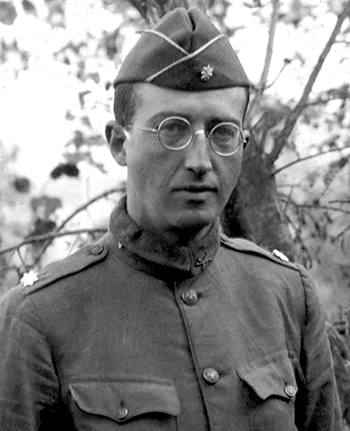
|
Charles W. "Charlie" Whittlesey |
 |
|||
| Rank, Service | ||||
Colonel, U.S. Army |
||||
| Veteran of: | ||||
|
||||
| Tribute: | ||||
Charlie Whittlesey was born on January 20, 1884, in Florence, Wisconsin. He graduated with a bachelor's degree from Williams College in Williamstown, Massachusetts, in 1905, and from Harvard Law School in 1908. Whittlesey worked as a lawyer in New York City where he formed a law partnership, and after World War I began, he was commissioned a Captain of Infantry in the U.S. Army on August 15, 1917. He was assigned to the 308th Infantry Regiment, 154th Infantry Brigade, of the 77th Infantry Division at Camp Upton, New York, and he deployed with his Regiment to France in April 1918. Capt Whittlesey trained with his Regiment with the British Army in France until June 1918, and then saw combat in the Defensive Sector, during the Oise-Aisne Offensive, and during the Meuse-Argonne Offensive, having been promoted to Major on September 25, 1918. During this final offensive, Major Whittlesey was commander of 1st Battalion, 308th Infantry Regiment, and he took command of the "Lost Battalion" when parts of several units were cut off and surrounded by German forces from October 2-7, 2018. For his heroism during this battle, he was later awarded the Medal of Honor. He was promoted to Lieutenant Colonel on October 13, 1918, and returned to the United States in November 1918. Lt Col Whittlesey was discharged from active duty on December 5, 1918, and was awarded the Medal of Honor on December 24, 1918. Col Whittlesey remained in the U.S. Army Reserve with the 153rd Depot Brigade at Camp Dix, New Jersey, until his death on November 26, 1921. His exact date of death is unknown, as he went overboard from the United Fruit Company steamer "Toloa" sometime between November 26 and 27, 1921. His remains were never recovered. |
||||
|
||||

